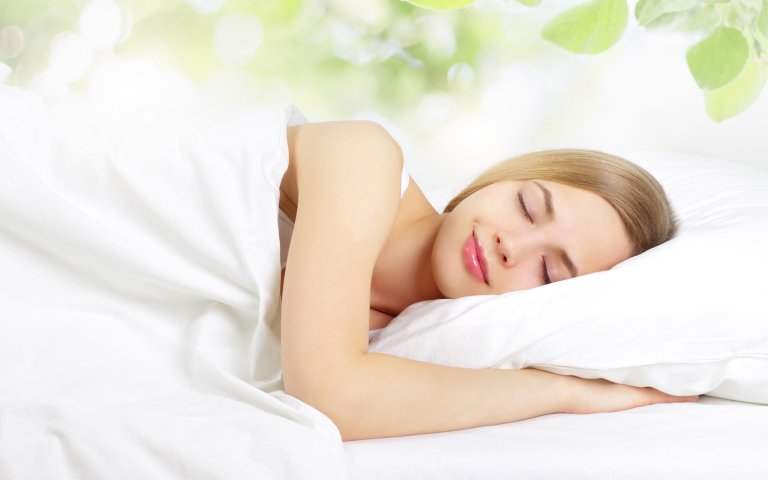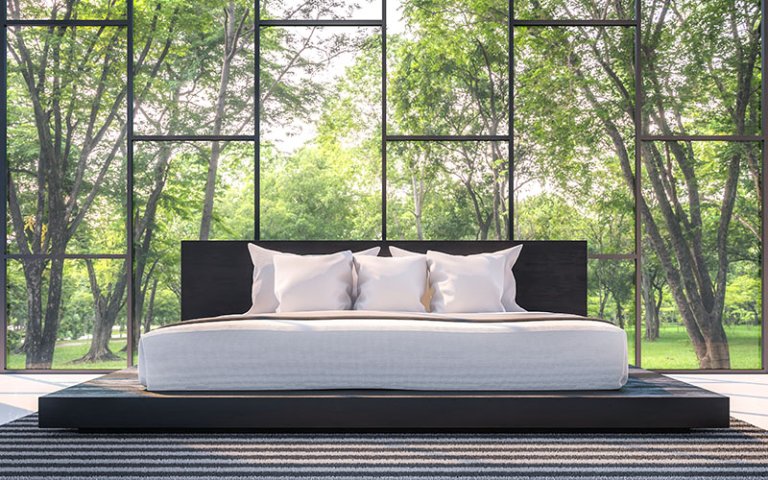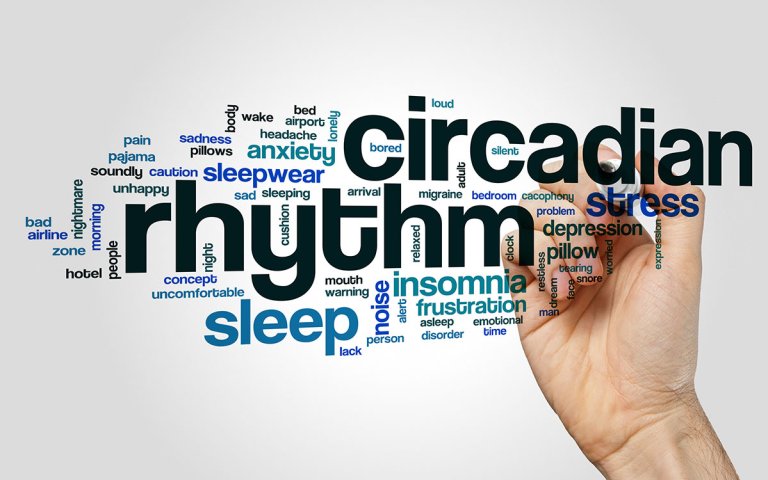
The Quality of Your Life Depends on the Quality of Your Sleep
Current research into sleep has shown just how important a good night's sleep is to function optimally in our busy, sometimes stressful, daily lives. Extensive research has begun to provide a detailed explanation for the benefits of healthy sleeping habits, and the impact of less than optimal sleep on our overall health, productivity, moods and relationships. A solid night's sleep has a myriad of benefits to keep us mentally alert, physically refreshed and emotionally stable.

The Glympahatic System
Much of the current sleep research is founded on the recent discovery of the glymphatic system, and its role in removing toxins from our brain.
“This system sort of flushes the brain of all metabolic waste, and it does this every night, getting in between the cells and neurons, purging the brain of the metabolic byproducts of the day,” says A. Thomas Perkins, a sleep expert and director of the Sleep Medicine Program at Raleigh Neurology.
This vital maintenance system, first discovered in 2012, uses the cells’ mitochondria to remove cellular waste from the brain. The important aspect of the glymphatic system is that it is particularly active during sleep, and not getting enough sleep or not sleeping deeply enough hinders your brain’s ability to perform this nightly flush. For detailed information on this important research - http://www.sleepdex.org/reboot.htm.
The National Sleep Foundation
The National Sleep Foundation, https://sleepfoundation.org/, suggests that "Your bedroom is your sanctuary from the stresses of the day. Use your senses to create the best environment for sleep." They now have an additional website, https://sleep.org/, that is "dedicated to starting a movement about the positive benefits of sleep health."
Both of these sites provide a wealth of information on successful sleeping habits, sleep health, sleep disorders and additional sleep topics. We urge to investigate these sites, not only if you are having trouble sleeping, but also to create even higher quality sleeping habits.
Getting a good night's sleep won't grant you immunity from disease, but study after study has found a link between insufficient sleep and some serious health problems, such as heart disease, heart attacks, diabetes, and obesity.

Guidelines for Creating a Healthy Sleeping Environment

Your Mattress is the Most Important Home Furnishing
Your mattress should have the highest priority of any piece of furniture in your home. You'll spend considerably more time on your mattress than on the couch or recliner.
Do not "tolerate" an aging mattress, assuming that an aching back, sore shoulders or hips, or morning stiffness are to be expected upon waking for a new day.
Inner-spring mattresses are more than 150 years old, and there have been enormous advances in the comfort of mattress materials, particularly foam mattresses.
Natural latex mattresses are free of chemicals and off-gassing, creating a healthier bedroom, while providing unsurpassed comfort and durability, and are the finest mattress choice available today.
Establish a Bedtime Routine
The most helpful bedtime routine is the simplest, stick to a regular sleep schedule. This helps to regulate your body's clock and could help you fall asleep and stay asleep for the night.
Try to set aside an hour before lights out to slow down and consciously step back from the over-stimulation of our everyday life. Maybe it's a hot bath, soothing music, a good book, cuddling with your partner, turning the lights down and relaxing, or many other choices that help you slow down.
The most important ingredient is that you make a conscious choice to reduce the stimulation and stress of your busy daytime hours by replacing that hurried pace with deliberately calming and slowing yourself down. This conscious choice will bring your body into harmony with the rhythm of deep sleep.


Power Down For Better Sleep
Whether it’s email, a video game, the Web, or TV, electronic devices have become mainstays in our busy lifestyles. However, the price for staying connected to these devices can be steep.
The cognitive stimulation from electronics increases the electrical activity in our brain, which can keep us from both falling asleep and sleeping well.
Studies have also shown that the light stimulation or "glow" from our electronic devices pass through the retina into a part of the hypothalamus (the area of the brain that controls several sleep activities) and delay the release of the sleep-inducing hormone, melatonin.
Make Your Bedroom Dark
Light and darkness are powerful cues that tell your body it's time to rest, or get you ready for a productive day. So it's no surprise that light in the bedroom (as well as light peeking in from outside) has an impact on the quality of your sleep.
Begin this process by turning off or dimming the lighting in your home to signal your body that it's time to begin slowing down. Don't interrupt this mood with bright lighting in you bedroom or bathroom as you prepare for bed.
If you can wake up rested with the sun after 7-9 hours of sleep, then by all means welcome the early morning rays. If not, use darkening curtains or shades to keep your body in sleep mode until it's time to wake up and start the day.


Bedroom Temperature
Research has shown that the temperature in your bedroom has a profound effect on falling asleep, and staying asleep. It's actually a very simple equation, our circadian rhythm responds to external stimulus, particularly when it's time for us to fall asleep. As temperature fall, our bodies responds by inducing sleep.
“When you go to sleep, your set point for body temperature -- the temperature your brain is trying to achieve -- goes down,” says H. Craig Heller, PhD, professor of biology at Stanford University, who wrote a chapter on temperature and sleep for a medical textbook. “Think of it as the internal thermostat.”
Not only does a mild drop in temperature help us to fall asleep, but the comfort level of your bedroom temperature also affects the quality of REM (rapid eye movement) sleep, the stage in which you dream.